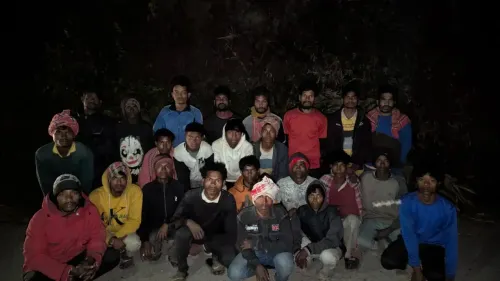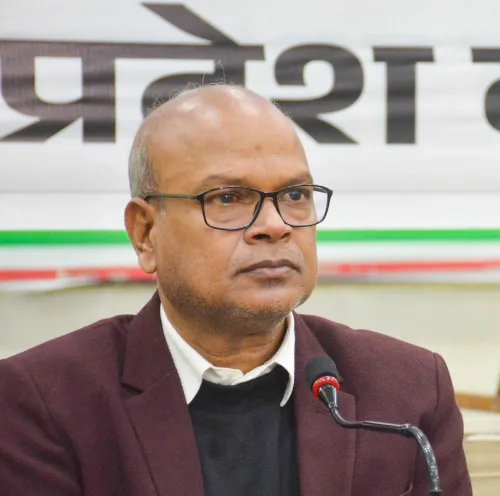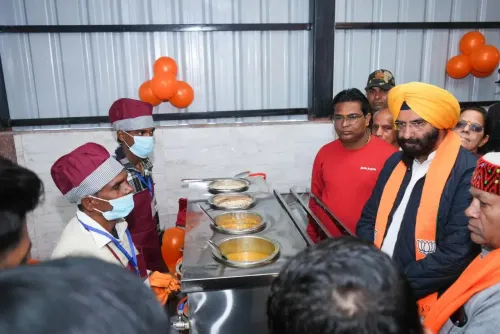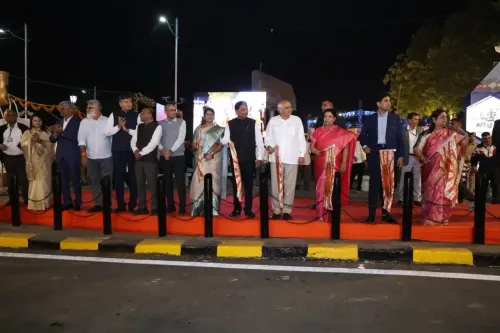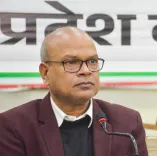Has the Delhi court delayed its decision in the National Herald case?
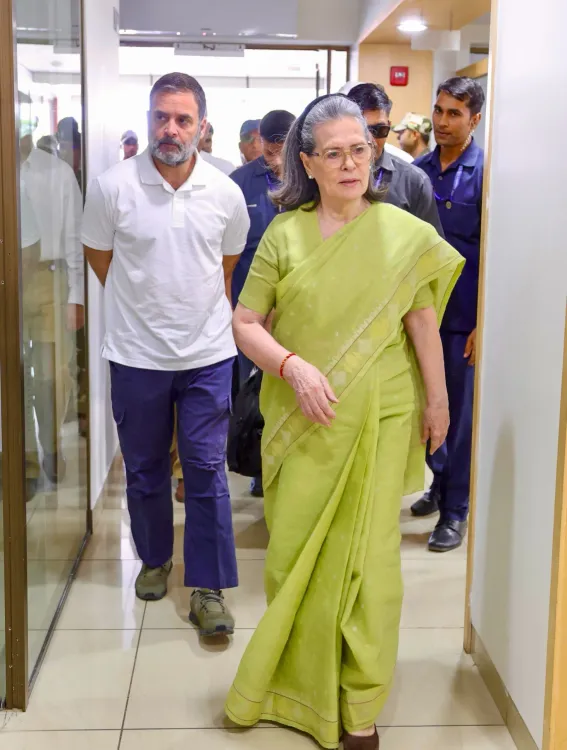
Synopsis
Key Takeaways
- Delhi court postpones ruling on National Herald case.
- High-profile accused include Sonia Gandhi and Rahul Gandhi.
- Allegations involve misappropriation of Rs 2,000 crore assets.
- ED claims conspiracy to benefit top Congress leaders.
- Legal proceedings continue to shape political narratives.
New Delhi, July 29 (NationPress) A Delhi court has postponed its ruling regarding the cognizance of the prosecution complaint submitted by the Enforcement Directorate (ED) in the alleged National Herald money laundering case. This high-profile case involves prominent figures such as Sonia Gandhi, the Chairperson of the Congress Parliamentary Party, Rahul Gandhi, the Leader of the Opposition (LoP) in the Lok Sabha, and Sam Pitroda, among others, who are accused under the Prevention of Money Laundering Act (PMLA).
Special Judge (PC Act) Vishal Gogne was expected to announce the verdict on Tuesday, but has now postponed the announcement until the second week of August.
The Rouse Avenue Court had reserved its decision on July 14 after listening to extensive arguments from the federal anti-money laundering agency and the accused parties, including the Gandhis.
During the proceedings, Additional Solicitor General (ASG) S.V. Raju, representing the ED, asserted that Young Indian Ltd, where both Sonia and Rahul Gandhi hold majority stakes, was allegedly utilized to misappropriate approximately Rs 2,000 crore worth of assets belonging to the National Herald by paying a mere Rs 50 lakh.
ASG Raju argued that Young Indian is merely a shell company, and that the other accused are mere puppets of the Gandhi family.
The ED claims that a conspiracy was orchestrated to establish Young Indian to seize control of the significant assets of the now-defunct newspaper, intended to benefit top Congress leaders.
The central agency accused several senior Congress leaders of engaging in “fake transactions” with Associated Journals Limited (AJL), the original publisher of the National Herald.
ASG Raju informed the court that individuals were instructed by senior Congress officials to make fraudulent advance rent payments over many years, accompanied by forged rent receipts.
The ED's prosecution complaint stated that through a malicious takeover, Congress leaders had misappropriated property belonging to AJL and converted public trusts into personal assets.
In defense, senior advocate Abhishek Manu Singhvi, representing Sonia Gandhi, described the money laundering allegations as “really strange” and “unprecedented”, contending that no tangible assets were implicated.
LoP Rahul Gandhi further claimed that the All India Congress Committee’s initiative to revive the pre-Independence newspaper was misinterpreted as an attempt to sell its assets.
Senior advocate R.S. Cheema, representing Rahul Gandhi, emphasized the non-profit goals of the company, stating that the National Herald was never a commercial entity and that the AICC merely aimed to restore the newspaper’s operations.
The controversy surrounding the assets of the National Herald gained attention in 2012 when BJP leader Subramanian Swamy filed a complaint in a trial court, alleging that Congress leaders had committed cheating and breach of trust during the acquisition of AJL.


